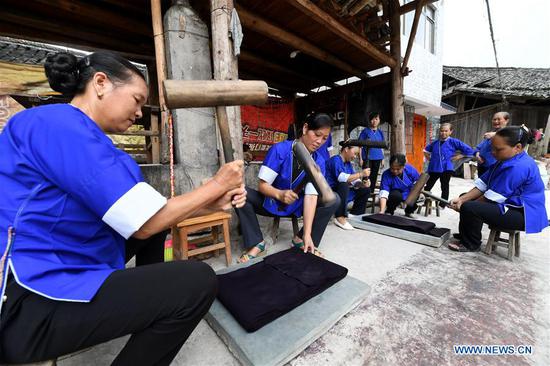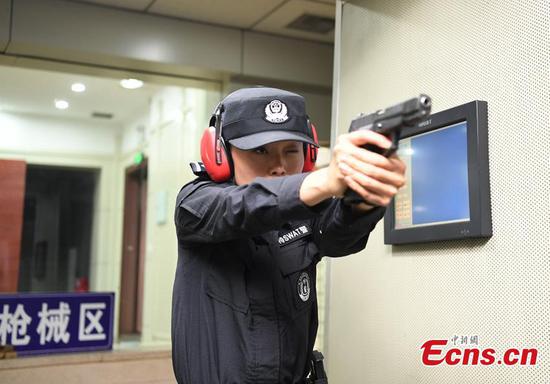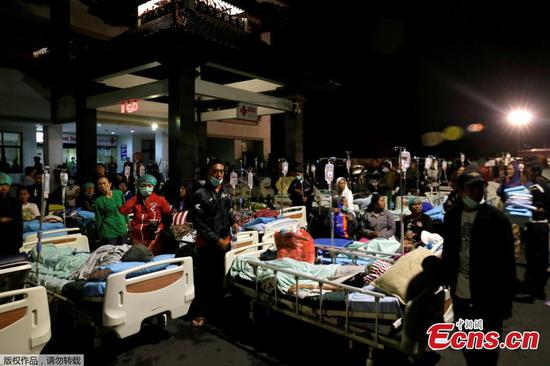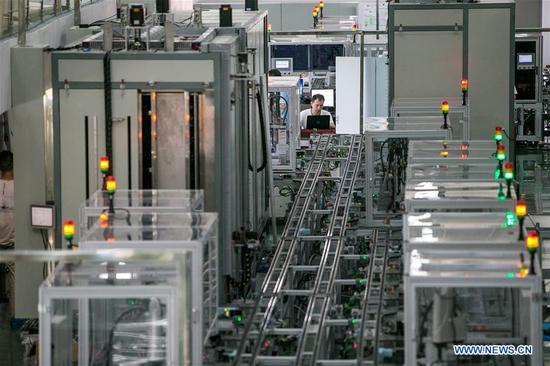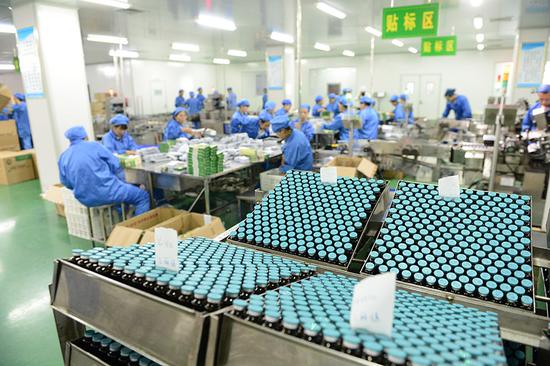
Employees of Fusen Group, a Henan province-based healthcare company, work at a production facility in Zhengzhou, capital of Henan. (Photo/Xinhua)
Tighter review process slowing approvals for public offerings
A total of 360 healthcare enterprises in the Chinese mainland have seen their IPO plans approved to date, with seven more companies joining the list in the first half of 2018, a slight deceleration, according to a report.
Among the seven enterprises, four were listed on the mainland's A-share market. The remaining three were listed on the Hong Kong Stock Exchange.
Firestone Inventing, a consulting company specializing in the medical industry, produced the report, which showed that the nation's healthcare companies have raised a total of 240.5 billion yuan ($35 billion) via IPOs to date, with an average of 668 million yuan per deal.
Guangdong province took first place for the number of healthcare enterprises with approved IPO plans, with 56, accounting for 15.56 percent of the national total, 3 percentage points higher than Zhejiang province, the runner up. Guangdong has held its lead since 2010.
But, Shanghai-based enterprises top the list in terms of the amount of money raised via IPOs since 2011.
By July 31, the eastern metropolis had accumulated 55.5 billion yuan via IPOs in the medical sector, representing 23.05 percent of the total industry. Total money raised in Shanghai was 66 percent higher than the second-place region Guangdong, which had raised 33.4 billion yuan.
Yang Chao, an analyst with Firestone Inventing, said 70 percent of the Shanghai-based medical enterprises that received approvals were listed on the main board, with relatively higher amounts of money raised.
From Jan 1 to July 31, 2018, only seven enterprises in the healthcare industry saw their IPO proposals approved, raising 14.4 billion yuan, marking a slight deceleration on previous periods.
"The slowdown (in healthcare IPOs) was due to the strict review of A-shares and the revision of listing rules. The overall IPO pass rate of A-shares this year is low," Yang said.
"In contrast, the Hong Kong Exchanges and Clearing Market issued new IPO regulations that allow companies with dual-class equity structures and biotech companies that have not yet posted a profit to go public in Hong Kong. The policy attracted a number of companies, such as Ping An Good Doctor, which was successfully listed in the H-share market."
According to China International Capital Corp Ltd, 34 stocks, including Ping An Good Doctor, are expected to soon be included in southbound trading, which allows investors in the Chinese mainland to buy Hong Kong stocks.
Brokerage Huatai Financial Holdings (Hong Kong) Ltd said that the results will be announced on Aug 10.
The 34 stocks were boosted by the news, with Ping An Good Doctor closing at HK$46.20 ($5.89) per share on Tuesday, up 0.11 percent.
Liu Jingkun, an analyst at ChinaVenture Institute, said: "Because the A-share market has relatively high demands in terms of profits, while the HKEX has lower thresholds for biomedical enterprises, companies that have not reported profits can choose the Hong Kong market for their IPO."
"The boom of chimeric antigen receptor T-cells (CAR-T) immuno-oncology technologies is likely to promote more biopharmaceutical companies to list. Furthermore, the current listing of low-end medical device companies is almost saturated. In the future, enterprises with strong import substitution ability and markets will have the advantage in getting their IPOs approved," he said.




























